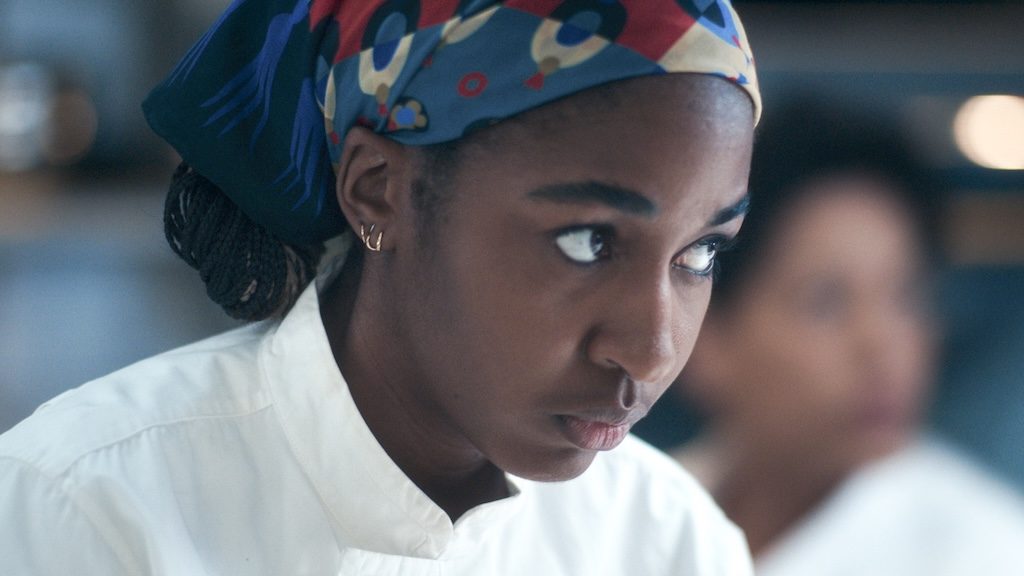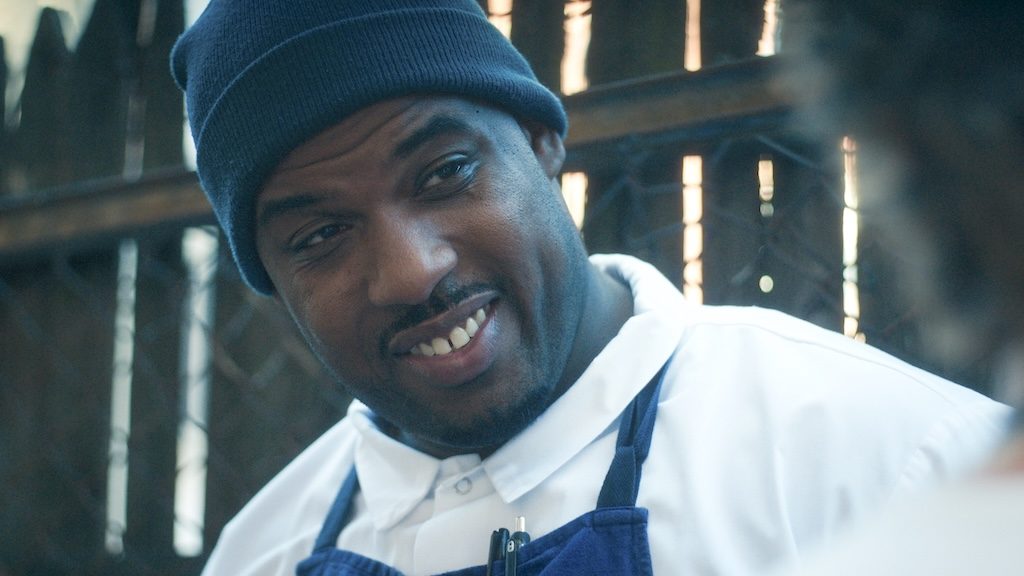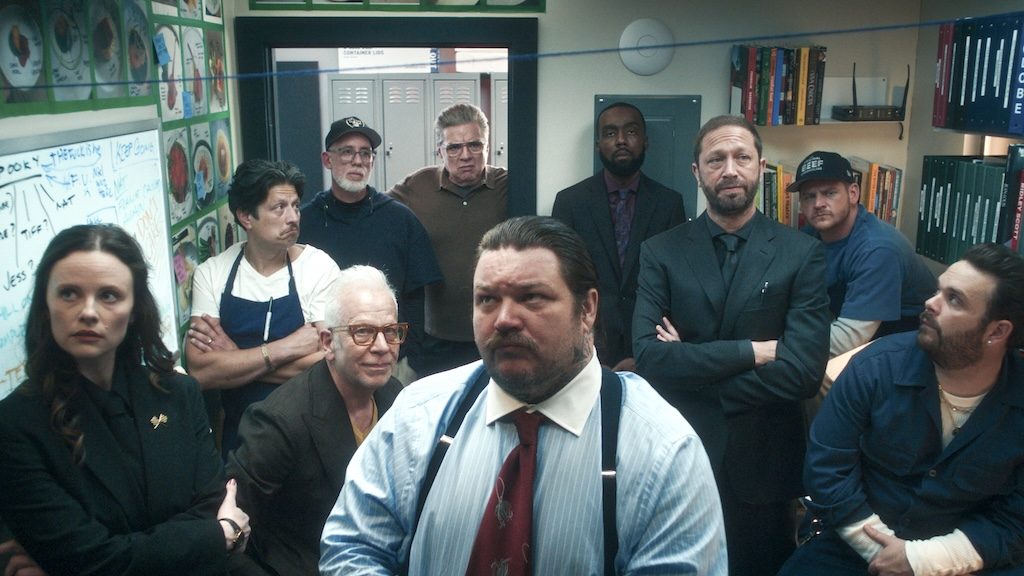“Yes, Chef” The Cultural Impact Of ‘The Bear’ On FX

The Bear on FX is a pressure-cooker microcosm of life. The relentless anxiety of counting bookings, Michelin stars, deliveries that run short, and unpaid vendors is part of the fine dining/ sandwich shop experience that creator Christopher Storer created. This pervasive stress, feelings of being helpless, being stuck, and swallowing water could occur in an operating theater or the kitchen tables of the show’s viewers.
It pulls no punches in its emotional honesty of grief, death, substance abuse, trauma, and dysfunctional family ties. However, The Bear isn’t simply a depressing TV series depicting the working class struggle against the establishment. Carmen Berzatto (Jeremy Allen White) feels a constant unease. He’s stuck. Uninspired. He has messed up. But he wants to make amends. He wants to do better. He may not know how, and he may not always succeed, but he tries. Sometimes an empathetic ear is all that’s needed.
There are a few rays of sunshine in the otherwise cloudy Chicago sky. The setbacks far outnumber the earned successes in the show. But that’s life. Most of us are just getting by. Arguably, The Bear is more about who we share those setbacks with to make us appreciate those Michelin stars all the more.
The Bear has been praised for its accurate portrayal of behind-the-scenes kitchen realism – often more like a rushed production line where the conveyor belt seizes up and timers beep, than artisans plying their culinary skills.
In this article, we explore what makes The Bear TV show so good.
Welcome to the Pressure Cooker
Now in its fourth season, and a fifth on the way at the time of publishing, The Berzattos and their extended family. Season 1 begins with Carmen (Carmy) Berzatto, leaves New York’s exclusive fine dining scene to salvage the family’sblue-collar sandwich shop – The Original Beef of Chicagoland following his brother Mikey’s death by suicide. The taste-bud dancing sandwich is served with a variety of condiments and a huge dollop of swearing – to add to the dining experience.
This setup packs more than a one-two punch. It strikes a four-five knockout as Carmy juggles social and financial issues. He drops the balls, but quickly picks them up again as he understands and rebuilds his deconstructed psyche. Therein lies the thematic beauty of The Bear. It’s more about the healing, hope, and transformation of the Berzattos and company than a pity party.

Christopher Storer
“I didn’t want to make a chef show. I wanted to make something about grief and family—and how kitchens can be a place where people go to heal, or at least try to,” says Christopher Storer.
The Original Beef—later rebranded simply as The Bear—is more than a business. It’s a living organism. “Running a restaurant is like trying to keep your soul intact while the world sets fire to your paycheck,” Storer quips.
The restaurant is chaotic, underfunded, and barely functioning—just like its staff. And yet, through shared sweat and suffering, something beautiful emerges: purpose.
The Bear uses its storylines more as a guide than a strictly adhered to writing device. Sure, things happen, but it’s more about how the characters react to them. How do they feel? What will they do? Oftentimes, the latter occupies more screen time than the plot points – cinema verité at its finest.
Culinary Chaos as Emotional Landscape
What makes The Bear truly alluring is how it embraces chaos. It is said that the only way to transcend a problem is to burn through it. And that is exactly what The Bear does. Fire!
The camera darts and spins like a line cook on a Saturday night shift. Conversations overlap. Orders fly. Tempers flare. And yet, amidst the clang of pans and the swirl of steam, something delicate simmers: an emotional story about people trying to hold themselves together and find peace and comfort until the next shift.
“I wanted the viewer to feel what it’s like to be in the weeds,” adds Storer. “To feel the stress, but also the artistry of the kitchen.”
The kitchen isn’t just a workplace—it’s an emotional crucible. It’s where trauma surfaces, egos clash, and redemption emerges from the relentless chaos. Through this emotional wringer, a sense of purpose and accomplishment arises.
Broken Men, Bold Women, and Flawed People
Much of the series’ emotional spine stems from its cast of complex, wounded characters. Each one is a walking wound, trying to stitch themselves back together. There are no heroes or villains in The Bear. Only humans. Here are the main characters:
Carmy (Jeremy Allen White): Haunted by grief and culinary perfectionism, he’s a bundle of nerves in a crisp white apron. His silence speaks louder than most characters’ monologues. He’s a thinker, a processor of emotions, a problem-solver, a survivor.

Sydney Adamu (Ayo Edebiri) Photo courtesy of FX networks
Sydney (Ayo Edebiri): The ambitious sous-chef brings modern technique and emotional intelligence into the kitchen. Her mentorship dynamic with Carmy is the show’s emotional heartbeat. She knows that she can do better than The Bear career-wise, but “here she is.” Her ability to express herself through scallops or whatever delicacy she whips up.
Richie (Ebon Moss-Bachrach): Initially abrasive and regressive, Richie evolves into the show’s most surprising source of growth and grace. He’s a divorced father with a seven-year-old daughter, Eva. His ex-wife Tiffany (Gillian Jacobs) is remarrying, and he navigates the possibility of Eva no longer seeing him as her daddy. Beautiful flowers can still grow in dry, rocky soil.
Marcus (Lionel Boyce): A pastry chef on a journey of artistic awakening, Marcus quietly embodies the show’s message of mental resilience and focus through creativity. His pièce de résistance is a donut he created for a kids’ party.
Natalie “Sugar” (Abby Elliott): Carmy’s sister, Natalie, is the force trying to keep the business—and her family—from falling apart.
And then there’s Neil Fak, played by real-life chef Matty Matheson. He’s the show’s comic relief, but also its soul. The Bear is his found family – a place where he feels he belongs. As Matheson puts it: “Laughter in the kitchen is a lifeline. It’s how we survive.”
A Symphony (or Cacophony) of Searing Dialogue
All the chefs were probably sent to the principal’s office in grade school. They never raise their hands to speak or wait for their turn to answer. It’s all unfiltered blurting.
Storer’s writing is sharp, overlapping, and brutally honest. Dialogue often feels less like TV scripting and more like eavesdropping on real people in their living rooms. Amid a torrent of colorful language, the dialogue in The Bear unfurls as poetry – a meditation, a stream of consciousness, a series of fragmented thoughts. It’s messy, natural speech more than dialogue.
“We wanted the language to reflect how people talk when they’re overwhelmed,” Storer says. “There’s no polish. It’sraw.”
Masculinity Reframed
The Bear also delivers one of the most riveting portrayals of masculinity and emotional vulnerability on television. Boys don’t cry. Maybe they slobber instead – with the occasional left-hook – with a frypan.

Marcus (Lionel Boyce) Photo courtesy of FX networks
Carmy, Richie, and Marcus are men grappling with emotional pain, but instead of hiding behind the bravado, they (eventually) talk about it. Cry about it. Cook through it – bar the occasional headlock.
“There’s this old idea that kitchens are places for tough guys,“ says Jeremy Allen White. “But this show says—what if we let those guys feel things?”
Standout Episodes
Generally, The Bear serves its story in 30 – 40 minute courses (episodes). Occasionally, standalone episodes like Fishes and The Wedding require a one-hour table booking to enjoy the chef’s special desserts and secret menu items.
Fishes (Season 2, Episode 6)
Set during a Berzatto family Christmas flashback, this episode is equal parts opera, family meal, and war zone. It features an all-star cast (Jamie Lee Curtis, Jon Bernthal, Bob Odenkirk) and captures generational trauma in a single, unblinking shot.
“We wanted it to feel like a bomb going off,” adds Storer. “Because that’s how those moments feel in real families.”
The Bears (Season 4, Episode 7)
Richie attends his ex-wife’s wedding to Frank (Josh Hartnett) —an emotional crucible that promises more catharsis than conflict. A large chunk of this episode is set under a dining table – a fortress shielded by a pristine white tablecloth. Richie’s daughter is hiding there because she doesn’t want to dance with Frank. Her loved ones join her, and each reveals what scares them the most.
Forks (Season 2, Episode 7)
As The Bear prepares for opening night, Richie’s training has concluded and he’s assigned to cutlery duties – drying and polishing.
“This was Richie’s baptism,” Ebon Moss-Bachrach shared. “He finds dignity in service. He learns to see.”

Jessica (Sarah Ramos), Donnie Madia, Chi-Chi (Christopher Zucchero), Nicholas “The Computer” Marshall (Brian Koppelman), Uncle Jimmy (Oliver Platt), Neil Fak (Matty Matheson) Sweeps (Corey Hendrix), Richard “Richie” Jerimovich (Ebon Moss-Bachrach), Chuckie (Paulie James) and Ted Fak (Ricky Staffieri) Photo courtesy of FX networks
Healing Isn’t Linear
Perhaps the show’s greatest strength is its depiction and analysis of grief and mental health. It focuses on process and management rather than tidy resolutions wrapped in a brightly-colored bow. There are no “lightbulb” moments or miraculous recoveries. The characters don’t wake up one morning after an immersive self-help weekend retreat. Grief lingers. Trauma flares. People backslide.
“Healing isn’t tidy,” says Ayo Edebiri. “It’s not a straight line. And we wanted to honor that truth.”
Instead, The Bear finds hope in the daily grind—one dish at a time. One honest conversation at a time. The kitchen becomes church, battlefield, and therapist’s couch all in one. Perhaps it’s a distraction or a reflection of the vagaries of life.
The Bear isn’t just another must-watch, prestige TV drama boasting another Emmy—it’s a pressure-cooked tender casserole of broken people trying to make something delicious. It’s sweaty, it’s soulful, it’s searing.
Join the Discussion!
Related Articles
Browse our Videos for Sale
[woocommerce_products_carousel_all_in_one template="compact.css" all_items="88" show_only="id" products="" ordering="random" categories="115" tags="" show_title="false" show_description="false" allow_shortcodes="false" show_price="false" show_category="false" show_tags="false" show_add_to_cart_button="false" show_more_button="false" show_more_items_button="false" show_featured_image="true" image_source="thumbnail" image_height="100" image_width="100" items_to_show_mobiles="3" items_to_show_tablets="6" items_to_show="6" slide_by="1" margin="0" loop="true" stop_on_hover="true" auto_play="true" auto_play_timeout="1200" auto_play_speed="1600" nav="false" nav_speed="800" dots="false" dots_speed="800" lazy_load="false" mouse_drag="true" mouse_wheel="true" touch_drag="true" easing="linear" auto_height="true"]










You must be logged in to post a comment Login